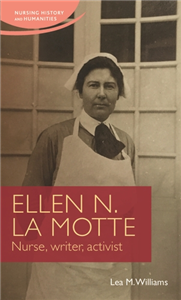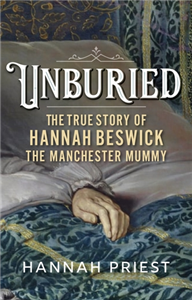Biography & True Stories
October 2020
Biographien und Beiträge zur Soziologie der Jugendbewegung
Nach 35 Jahren umfassend erweitert: Die maßgebliche Personendokumentation zur deutschen Jugendbewegung. Neuausgabe mit allen (überwiegend bisher unveröffentlichten) Personenakten im Faksimile. Zusammen zwölf Bände. Gefördert von der Deutschen Stiftung Denkmalschutz. Faksimile der fünf Originalbände, ergänzt um hunderte bio-/bibliographische Fragebögen, meist in Originalhandschriften! Das gesamte verbliebene Fragebogenmaterial der Redaktion. Studienausgabe: fünf Bände mit je ca. 360 S. Ergänzungen, Manuskripte und Fragebögen: sieben Bände mit je ca. 360 S. und einem umfangreichen Nachwort im letzten Band.
Namenliste: Abetz, Otto; Aff, Johannes; Ahlborn, Knud; Ahlemann, Joachim; Ahrens, Heinrich; Aigles, Alma de l‘; Alfken, Hans; Althaus, Richard; Altmann-Reich, Hilde; Altpeter, Werner; Alverdes, Paul; Amanshauser, Helmut; Apel, Fritz; Avenarius, Ferdinand; Bahner, Georg; Bahrs, Hans; Baldes, Hermann; Ballerstedt, Kurt; Ballerstedt, Walther; Barthel, Max; Baumann, Hans; Bayer, Maximilian; Becker, Marie-Luise; Behrends, Ernst; Berghäuser, Ernst; Bergstraesser, Arnold; Berthold, Jörg; Blüher, Hans; Blunck, Hans Friedrich; Böhme, Herbert; Bohnenkamp, Hans; Bojarzin, Otto; Bondy, Curt; Borinski, Fritz; Bösche, Hermann; Bötel, Fritz; Brandt, Willy; Brauns, Friedrich; Brehm, Bruno; Bresgen, Cesar; Breuer, Hans; Brües, Otto; Brundert, Willi; Brunner, Heinz; Brunotte, Heinz; Bryk, Kurd; Buber, Martin; Burger, Fritz; Burgstaller, Ernst; Burkart, Hans; Buske, Ernst; Caesar (Keyser), Julius; Chester, Richard; Christaller, Walter; Claudius, Hermann; Claussen, Wilhelm; Conti, Leonardo; Copalle, Siegfried; Cornelius, Friedrich; Cramm, Walter; Daur, Rudolf; Deckart, Martin; Degenhard, Franz Josef; Dehmel, Hans; Diederich, Werner; Diederichs, Eugen; Diehl, Guida; Dienel, Kurz; Diete, Kurt; Dietrich, Karl; Dombrowski, Hermann; Droste, Johannes; Duis, Ernst; Dwinger, Edwin Erich; Ege, Clara; Ehlen, Nikolaus; Ehrenthal, Lutz-Günther; Ehrentreich, Alfred; Eichelberg, Max; Eichen, Heinrich; Eimermacher, Harald; Engelhardt, Emil; Ewald, Otto; Fabricius, Wilhelm; Fallada, Hans; Finckh, Ludwig; Fischer, Karl; Fischer, Walter; Fitz, Oskar; Flach, Jakob; Flex, Walter; Flitner, Wilhelm; Fort, Gertrud Freiin von le; Frank, Ernst; Frank, Karl Hermann; Franz, Günther; Friederichsen, Roland; Fulda, Friedrich Wilhelm; Fulda, Leopold; Gambke, Gotthard; Gardiner, Rolf; Gast, Lise; Gättke, Walter; Geiger-Hof, Anna; Geißler, Wilhelm; Gerber, Kurt; Gerber, Walther; Gerlach, Dankwart; Gerlach, Kurt; Gerlach, Richard; Gerstner, Hermann; Geyer, Wilm; Gilardoni-Hildebrand, Hannes; Gneist, Werner; Goebel, Ferdinand; Gollwitzer, Gerhard; Gollwitzer, Helmut; Görres, Ida Friederike; Götsch, Georg; Götze, Rudolph; Gräff, Otger; Gregori, Ellen; Greiff, Walter; Groß, Julius; Grünewald, Ernst; Grzimek, Bernhard; Guardini, Romano; Haase, Hugo; Habbel, Franz Ludwig; Hachtmann, Rüdiger; Hammer, Walter; Harhammer, Leopold; Harmsen, Hans; Hauck, Ernst; Hauer, Jakob Wilhelm; Hausmann, Manfred; Heeren, Hanns; Heinrich, Fritz; Heise, Heinrich; Heisenberg, Werner; Heister, Bernhard; Hellmuth, Fritz; Helwig, Werner; Hensel, Walther; Hesse, Gerda; Hesse, Kurt-Werner; Heybey, Wolfgang; Heyck, Hans; Hockl, Hans Wolfram; Hoffmann, Adolf; Hoffmann, Fritz Hugo; Hoffmann-Fölkersamb, Hermann; Hoheisel, Will; Holtorf, Hans; Höppener, Hugo (Fidus); Horstmann, Erwin; Hubatsch, Walther; Hübotter, Wilhelm; Hüser, Fritz; Hüttenmeister, Josef; Illgen, Walter; Inderfurth, Wilhelm; Italiaander, Rolf; Iwowski, Klara; Jacob, Max; Jahn, Willie; Jannasch, Hans-Windekilde; Jansen, Willie; Jantzen, Walther; Jarmuth, Kurt; Jöde, Fritz; Jünger, Ernst; Jüngling, Eberhard; Just, Herbert; Kauenhoven, Kurt; Keil, Georg; Keil, Theo; Kistner, Albrecht; Kittel, Helmuth; Klages, Ludwig; Klönne, Arno; Klose, Werner; Kneip, Rudolf; Knoch, Willi; Knothe, Elisabeth; Köbel, Eberhard; Koch, Rudolf; König, Franz; Körber, Normann; Kötschau, Georg; Kotzde-Kottenrodt, Wilhelm; Krauss, Friedrich Emil; Krebs, Albert; Kreisky, Bruno; Kreppel, Friedrich; Kroeber-Keneth, Ludwig; Kröher, Heinrich und Oskar; Kroug, Wolfgang; Kügler, Hermann; Kuhn, Martin; Küppers-Sonnenberg, Gustav Adolf; Kurella, Alfred; Kutzleb, Hjalmar; Kynast, Karl; Lampel, Peter Martin; Laß, Werner; Lehmann, Wilhelm; Lehnartz, Emil; Leibl, Ernst; Leip, Hans; Lenk, Rudolf; Lensch, Otto; Lenzen, Heinrich Jacob; Leut geb. Buch, Dora; Licht, Ernst; Lienhard, Ludwig; Lietz, Hermann; Linz, Armin; Linz, Bernhard; Lion, Alexander; Lippe, Ferdinand v. d; Lischke, Kurt; Lißner, Hans; Löns, Hermann; Losch, Sebastian; Löwe, Hans; Luntowski, Adalbert; Luserke, Martin; Lüth, Erich; Mahraun, Artur; Manstein, Bodo; Matthes, Erich; May, Werner; Medau, Hinrich; Mehnert, Klaus; Mehnert, Rudolf; Melchers, Georg; Menzel, Wilhelm; Merkel, Heinrich Georg; Messerschmid, Felix; Metzger, Ludwig; Meusel, Anton; Mewes, Fritz; Meyer, Kurt; Meyer, Werner; Mirbt, Rudolf; Mitgau, Hermann; Mittelstraß, Gustav; Mülhause, Therese; Müller, Karl Christian; Münker, Wilhelm; Nasarski, Peter E; Nawothnig, Walter; Neuendorff, Edmund; Nitsche, Ernst; Noack, Helmut; Nöldeke-Christaller, Erika; Nolte, Heinrich; Nopitsch, Antonie; Oberländer, Theodor; Oelbermann, Karl; Oelbermann, Robert; Oertel, Hans Joachim; Ollenhauer, Erich; Oppenberg, Ferdinand; Oschilewski, Walther G; Paasche, Hans; Pabst, Helmut; Paetel, Karl O; Paetow, Karl; Perleberg, Gilbert; Pfannenstiel, Ekkehart; Pfeiffer, Hermann; Pleyer, Wilhelm; Pohl, Werner; Popert, Hermann; Poppe, Richard; Prellwitz, Gertrud; Prütz, Siegfried; Rabe, Hanns-Gerd; Rasmus, Claus Friedrich; Rehm, Max; Reichwein, Adolf; Reinemann, John Otto; Richter, Hans; Ritter, Heinz; Roßberg, Martin; Roth, Eugen; Roth, Fritz; Schafft, Hermann; Schierer, Heinz; Schirrmann, Richard; Schmid, Carlo; Schmitz, Heinz; Schneehagen, Christian; Schoeps, Hans-Joachim; Scholz, Erich (Olka); Schomburg, Burkhart; Schönfelder, Otto (Cölner); Schottky, Ernst; Schrammen, Bertchen; Schriefer, Werner; Schröcke, Helmut; Schubmehl, Emma; Schulze, Harry Paul; Schumann, Gerhard; Schumann, Heinrich; Schütte, Hermann; Schweitzer, Horst; Sckerl, Else; Sckerl, Lucie; Seidelmann, Karl; Seidler, Georg; Seiler, Karl-Günther; Severing, Adolf; Shaltiel, David; Sievers, Johannes; Sinkwitz, Paul; Sohnrey, Heinrich; Sonntag, Karl; Sperling, Erich; Springenschmid, Karl; Stachowitsch, Alexej; Staebler, Johannes; Staffen, Rudolf; Stählin, Wilhelm; Stark, Leonhard; Steglich, Arno; Stengel-v. Rutkowski, Lothar; Steudtner, Fritz; Stoehr geb. Maladinski, Marianne; Strüver, Erwin; Süßmuth, Richard; Sydow, Kurt; Tegtmeier, Wilhelm; Thomas, Joachim; Thon, Alfred; Thums, Karl; Tormin, Helmut; Uhsadel, Walter; Voelkel, Martin; Vogel, Theodor; Voggenreiter, Ludwig; Völker, Wolf; Vötterle, Karl; Walter, Theo; Weber, A. Paul; Wecke, Gerhard; Weichmann, Herbert; Weidemann, Magnus; Weismantel, Leo; Welter, Günther; Wendland, Heinz-Dietrich; Werner, Karl; Wilker, Karl; Wittek, Erhard; Wolf, Hans; Wolff, Günther; Wurche, Ernst; Wyneken, Gustav; Zacharias, Alfred; Zadek, Walter; Zaese-Fell, Johanna; Zastrau, Alfred; Ziemer, Gerhard; Zimmer, Erich; Zimmermann, Werner; Zimprich, Richard; Zinserling, Heino; Zombat von Zombatfalva, Gyula; Zuckmayer, Carl





























